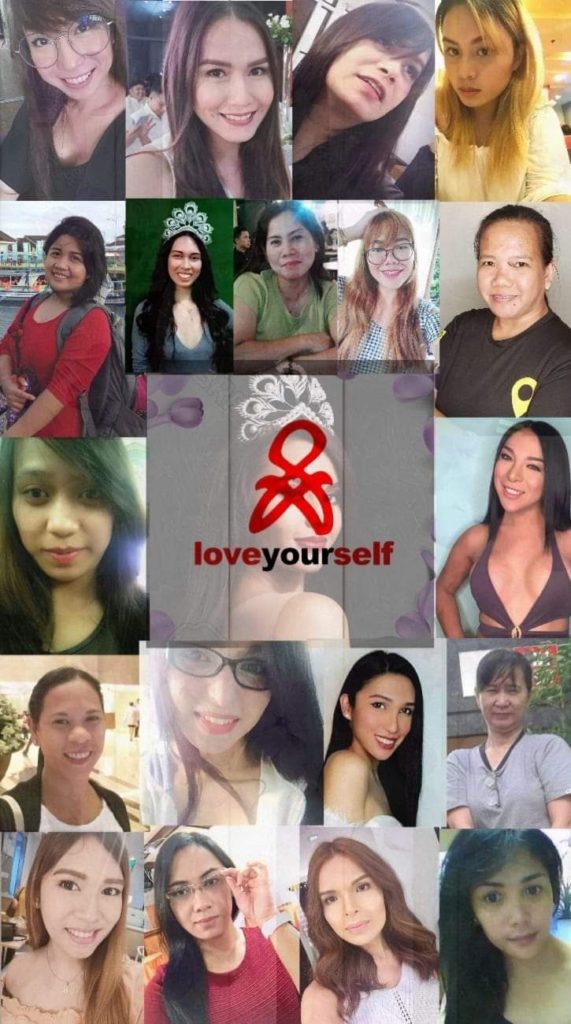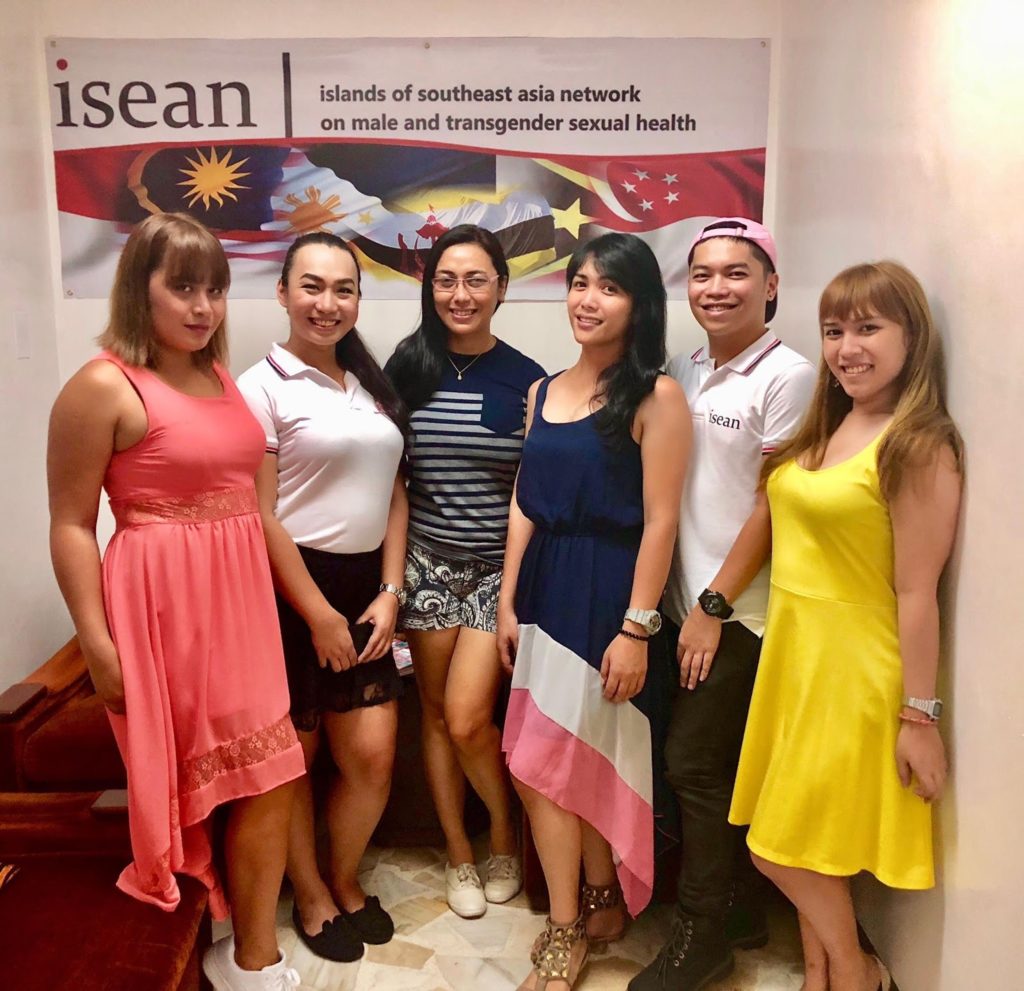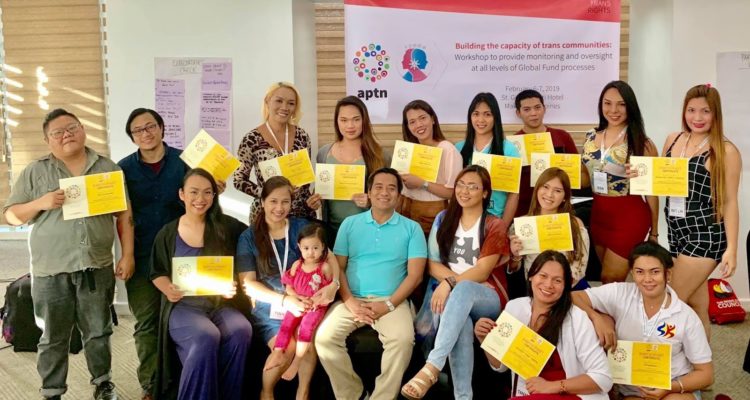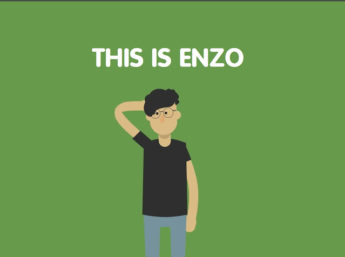Women’s month is a celebration of women’s success and contribution to our society. Inclusion has been a long standing issue in the movement towards equality, and for LGBTQIA+ women it is a bigger struggle to remain visible. During dictatorship in the 1980’s, the lesbian community struggled to be visible to the public due to subsumption of their rights between women’s rights that were previously heterosexual in nature and gay movement that previously regarded them as female version of homosexual men. It is already 2019 and the same struggles can be seen happening in the trans community.
History of Trans Women in the Philippines
Contrary to popular belief, transgender women or trans women did not just pop-up in the 20th century. Several accounts in Philippine history prove that trans women had played important roles in our society even before the Spaniards came to the Philippines. The most popular of which are the Babaylans or Visayan Shamans, who were respected by the community because of the belief that they have the ability to heal and the authority to speak with divinities.
In Luzon, we also have the Lakapati of Tagalog mythology, who is known as the Transgender Goddess of Golden Rice and Fertility in pre-colonized Philippines. Our ancestors believed that personification of Lakapati as intersex has been attributed to the indigenous view that an intersex shows the ‘balance deemed by nature’. This may be the reason why Lakapati became the second most loved deity by the people, next to the supreme deity Bathala.
In efforts of spreading Catholicism in our country, priests made the people believe that the gender-crossers were witches, which led to prosecution for some. As a result, our beliefs of pre-colonial deities gradually faded and seemed to have become myths.
Fast forward to today, Filipinos are fascinated by the beauty of trans women. Difficulty in distinguishing trans women from cis gender women has been a point of pride for trans women – being called“passable” or “babaeng babae (so girly), walang bahid (passable), walang buking (no trace of being a man)”.
It is also to this fascination of their beauty that pageants became the typical platform for trans women to showcase their beauty and talents, which has also become the main source of income to some. Filipinos undeniably love beauty pageants. As specified by Miss Universe 2018 Catriona Gray, it is one of our 3 B’s along with basketball, boxing. But does this mean that Filipinos have already accepted trans women and recognized their rights in our society? Or is it mere tolerance and not necessarily acceptance?

What makes a woman a woman?
When Miss Universe 1994 Sushmita Sen was asked about the essence of being a woman, she answered, “Just being a woman is God’s gift that all of us must appreciate. The origin of a child is a mother, and is a woman. She shows a man, what sharing, caring and loving is all about. That is the essence of a woman.”
This answer has been hailed as one of the best answers in the history of Miss Universe pageant but has also become the basis for the usual argument of people who refuse to regard trans women as “real women”.
It is important to note that both cisgender and transgender women have estrogen, or female hormones in their bodies. In this sense, both can be identified female even before genitalia was formed inside their mother’s womb. Also, even the bearing a child argument cuts off cis women who are unable to bear children. With the arguments being considered, it is not really a physical matter at this point. Perhaps, we should consider looking at the definition of a woman in terms of gender, which is a cultural and social construct.
Thus, being a woman is more than having female genitalia or having the ability to give birth, it is more of how one identifies herself. Lack of in depth understanding of Sexual Orientation, Gender Identity and Expression (SOGIE) is usually the root cause of apathy towards trans women’s fight for recognition. By definition, transgender women are women whose identity, expression, behavior, or self-perception do not conform with the assigned sex at birth.
Becoming Politically Recognized
Some trans women have made their mark and became popular in mainstream media. We witnessed the coming out and transitioning of BB Gandanghari and Angie King, listened to the TED talk of Geena Rocero, elected Heart Diño in USC of UP Diliman and Geraldine Roman in the Congress, and tuned in to the stories of Rica Paras in Pinoy Big Brother and Mela Habijan in ‘Asawa Ko, Karibal Ko’. While their contributions can be regarded as a step forward, their presence at the limelight still cannot invalidate the horror stories that normal trans women are still experiencing.

It is not uncommon to hear stories of trans women experiencing harassment and discrimination on a daily basis. In seeking for employment, trans women are often forced to choose working in sub-standard labour conditions due to discrimination that prevents them from accessing formal employment. Some universities and companies enforce dress codes that are restrictive of trans women’s choices.
In 2018 alone, the following ignorant incidents against trans women happened in the country:
- A trans woman was asked by two security guards to leave the courtesy lane designated for women, elderly and persons with disabilities at the Ayala station of MRT-3 as “boys” are not allowed in the said lane.
- A trans woman was disallowed by an H&M staff from trying on swimsuits because men are not allowed to fit women’s swimwear.
- Impersonator KaladKaren Davila was denied entry at a bar in Makati for being “gay”.
Aside from these occurrences, there are trans women who do not have the opportunity to learn about their SOGIE and available services such as Hormone Replacement Therapy (HRT). The country also still lacks a specific law or policy for providing legal gender recognition for transgender people in general. In fact, RA 9048 (Clerical Error Law of 2001) makes it effectively illegal for transgender persons in the Philippines to change their first name and sex in their birth certificates.
Harassment and discrimination can be harmful to one’s self-esteem, especially to those with trans identities who become targets just for showcasing who they are on a daily basis. The continuous refusal of the government to pass laws and policies, such as the Anti-Discrimination Bill (SOGIE Bill), that recognize the rights of trans women, paves the way to a more non-accepting Philippines.
In today’s society where being different is still considered being less of a human, the women of the LGTBQIA+ community are not asking for any special treatment. What the community hopes to achieve is having an equal opportunity and treatment from everyone. Passage of the SOGIE Bill will not only achieve this, but will also give way to a more inclusive, understanding, and respectful environment. Perhaps by then, everyone will be able to understand what it means when someone say, “Trans women are women”.
Text by Nicole Silvestre
Photos by Raine Cortes
Photo collage by Bubbles Rosos




